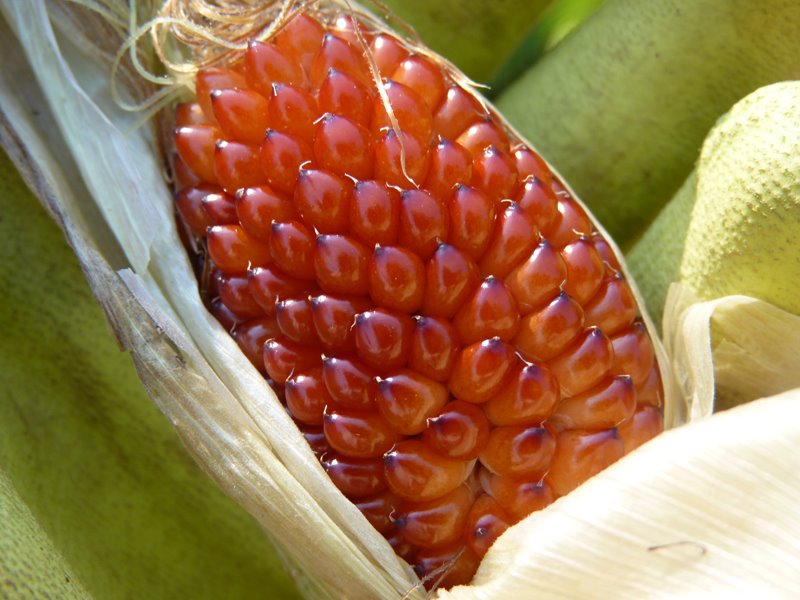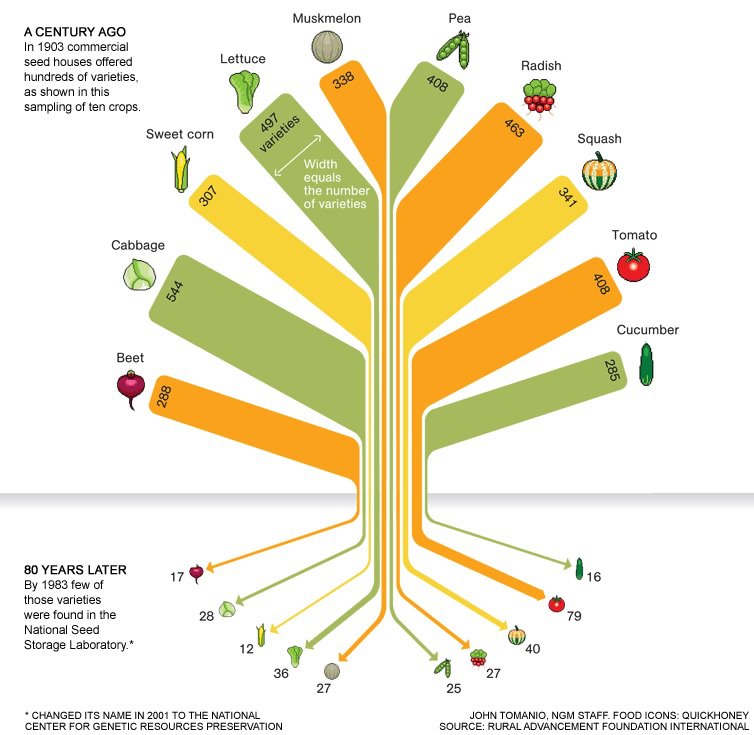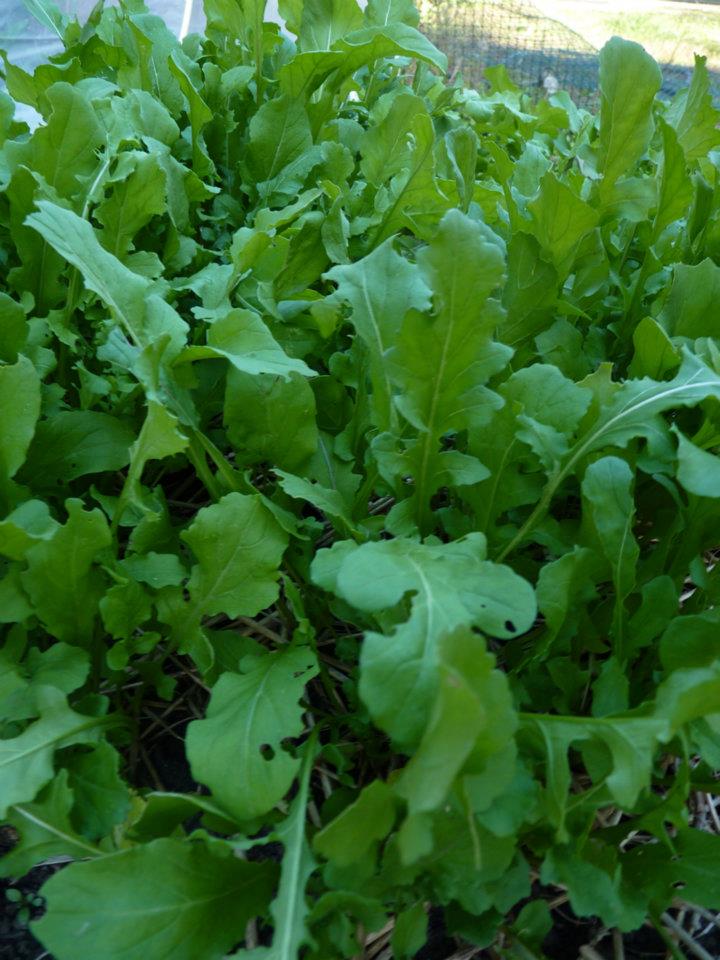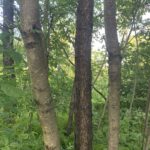When I started patio gardening some years ago, I didn’t really know a lot about seeds. Like most Americans, I had simply gone to the store, bought a packet of seeds (or a group of plants already started from a local nursery) planted them, tended them, and watched them grow. Then, a good friend of mine opened my eyes to the real controversies surrounding seeds, and I worked to educate myself about this process–and realizing how important it is.
A quiet war has been waging for some time concerning the future of human food production around the globe–how it is produced, who controls it, and whether or not it is done in a sustainable or destructive manner. In light of the recent news about the group of 3,000 organic farmers suing Monsanto and the growing Farmer’s Market/organic movement in America, I thought I would take some time to write about the importance of seeds for the average gardener. Understanding where your seeds come from and who is selling them is an important part of understanding gardening as a sustainable, earth-friendly practice. This post will describe a bit about the types of seeds available and resources where you can find more information. I’ll be doing a series on seeds in this coming year–including some posts on how to start seeds indoors and save certain varieties of seeds.
Types of Seeds: Hybrid vs. Open-Pollinated / Heirloom
There are essentially two types of seeds (and several sub-categories of seed) currently available: Open Pollenated/Heirloom and Hybrid:

Open-pollinated seeds are seeds that are pollenated/propogated by natural means (birds, wind, etc) and usually are long-standing varities, carefully saved and grown each year. Open-pollenated seeds can be saved from year to year, and will continue to produce the same variety (assuming no cross-pollination with other like plants, such as tomatoes). Open-pollenated seeds were the only seeds that existed up until the latter part of the 20th century when big agribusinesses developed.
Heirloom seeds refer to open-pollinated seeds that have some history–in that gardeners/farmers have been breeding the same variety for many years (how many years of breeding = heirloom status is subject to some debate in the gardening community). Not all open-pollinated seeds are heirlooms, but most are. Open-pollinated Heirloom seeds are richly diverse–you can have black or yellow tomaotes, purple carrots, purple or pink potatoes, etc. Or, one of my favorites, strawberry popcorn (in the photo above).
Hybrid seeds are seeds that have been created in a carefully controlled setting, usually focusing on yield output and consistent qualities. Big seed companies (Monsanto, others) like hybrid seeds because, unlike open-pollinated varieties, you can’t save seeds year to year meaning that customers/gardeners/farmers must come back and purchase seeds each year for planting–which generates the seed company much revenue. On a larger scale, the carefully controlled settings in which these seeds are produced limit biodiversity and ensure conformity–usually for overall yield production and size of fruit (but not flavor). Part of the controversy with hybrid seeds is that some of them–like those produced by Monsanto–contain massive amounts of genetic modification, including built-in pesticides, etc. Unlike open-pollinated varieties, these seeds haven’t developed naturally.
The use of hybrid seeds in farming, including an emphasis on yield and vegetable/fruit size has helped farmers increase profits. However, it has contributed to a loss of biodiversity in our foods (see graphic below) as well as significantly declining nutritional value.

Why Open-Pollinated Varieties Should Be Supported
So what? Who cares? There are a few very critical reasons why gardeners should purchase open-pollinated seeds (whether or not they choose to save them).
#1) Biodiversity. Evolutionary theory indicates that survival of an ecosystem and an individual species is about biodiversity–within a species and between species. The long-term ramifications of limiting vegetables, fruits, grains, and herbs to a few small strains is potentially quite dangerous. To give you one such example of why biodiversity matters: if a massive blight were to strike our vegetable crops, the more species of crops we have growing, the more likely one or more of these species would prove resistant.
#2) Flavor and nutrition. Open-pollinated seeds, which have not been highly genetically modified for vield and size, produce more flavorful, nutritious foods. If you don’t believe me, try this experiment. Purchase one packet of “normal” seeds from the big box store, and purchase 1 packet of “Black Krim” tomatoes from the Seed Savers Exchange. Grow a plant or two of each, and when the fruits are ready, compare them. You’ll be amazed at the flavor of the Black Krim (and, I might add, so spoiled by the taste that you’ll never eat supermarket tomatoes again!)
#3) Variety for your garden. You can grow a wide variety of interesting open-pollinated plants in your garden each year. Last year, I grew three kinds of carrots (Paris Market, Dragon, and St. Valery) each with a distinct flavor and purpose. The Paris market carrots were excellent for eating and soups, the dragon carrots, being more spicy, worked great for salads, and the St. Valery were saved for long-term storage in a root cellar bin (which I blogged about here). If I didn’t have access to these wonderful varities, I would be stuck with just “carrot.”
#4) Sustainability. It is unsustainable (and simply unwise) to depend on a few big seed companies year after year to provide suitable seeds for growing crops. What if something were to happen to our shipping lines and seeds weren’t available?
#5) Local Independence. What about all of that fossil fuel big agribusiness is using to move their hybrid seeds from place to place? If farmers/gardeners were able to save their seed and use open-pollinated varieties, the seed for each year would be produced in the same place that it grew, minimizing dependence on fossil fuels.

Seeds from a Druidic Perspective
As someone who uses gardening not only as a way to be a more environmentally conscious citizen, but also as a spiritual practice, I think the issue of seeds is also a critical one. If we think about the energies that go into producing a seed, we begin to see the spiritual dimensions of this choice. An open-pollinated seed is grown naturally, using the wind and birds to pollinate (air), the sun (fire), the rain (water) and the fertile soil (earth) to grow. The hybrid seeds, grown in their carefully controlled lab settings do not necessarily have this elemental balance. Furthermore, if we, as druids, are to be tenders of the land and lead by example, supporting long-standing traditional ways of growing our food rather than a system designed to maximize profits seems like a wise idea.
Each day, when I go to my beautiful, organic garden full of seeds that are open-pollinated in varieties that, until I grew them, I never saw in any store, I am once again amazed and awed by the value of life.
Resources for Open-Pollinated Seeds and Seed Saving
I have been working to save my own seeds (which is a work in progress, haha!) and also support companies and organizations devoted to keeping our open-pollinated and heirloom varieties of seeds available. Here are a few resources for you:
The Seed Saver’s Exchange. The SSE is a non-profit organization that is devoted to educating the world about seed saving as well as making many open-pollinated seed lines available to the everyday consumer. This is where I’ve purchased the bulk of my seeds for my garden–and thus far, I have loved every single variety I’ve planted!
Victory Seeds. This is a seed company who grows and maintains many of their own seed lines–and the rest they get from other small farms. They have a number of different seeds that you cant find at SSE.
Baker Creek Heirloom Seeds. Another excellent source of open-pollenated seeds. The owners of this company are also very active within the seed saving community.
Seed to Seed: A Seed Saving Handbook. When I started saving seeds, this was the best resource I found. This book teaches you how to save many varieties of seeds and includes information about storage, preparing the seeds, and information for each plant type. Well worth the price!


Thank you so much for the very informative and inspiring post! I grew up gardening, and while my mother did buy some hybrids she loved experimenting with the seed that she would get from them to see what she could get. I’m having my own small vegetable garden for the first time this year and am very excited to try my hand at it. Attempting to use mostly heirloom seeds, and will definitely be saving seeds.
I’m destrought to see the damage Monsanto and their ilk have done to farmers and the environment. The main function of food s not to produce profit, but nutrition. :owering all standards in an attempmt to control all the food in the nation is a criminal offence against children, people in general and the environment as a whole. I cannot describe the lengths Monsanto has gone to to drive all farmers to their products. There are films out there that can do that better than i can. I can’t cotton to a ban or boycott. What I can suggest is exactly what this site suggests. Forget about the produce in the stores. Grow a couple fruit trees on your front lawn. Have a garden in your back yard. Feed your family with all the wonderfulness that inherent in the joys of having a garden. The rest will take care of itself.
Thanks for commenting, Marcuccassius! I agree that Monsanto is literally criminal. But every time I plant a veggie in my yard that is heirloom or open pollenated, that’s one more way of empowering myself and removing their influence over the food system!